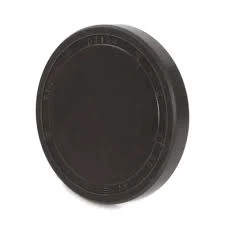Mobile:+86-311-808-126-83
Email:info@ydcastings.com
Spanish
Lightweight Aluminium Oil Pans for Enhanced Performance and Durability in Your Vehicle
The Benefits and Considerations of Aluminium Oil Pans
Aluminium oil pans have garnered significant attention in the automotive and performance car communities due to their lightweight properties, excellent heat dissipation, and increased durability. These oil pans play a crucial role in ensuring the efficient functioning of an engine. In this article, we will explore the advantages of using aluminium oil pans, potential drawbacks, and their impact on vehicle performance.
The Advantages of Aluminium Oil Pans
1. Weight Reduction One of the most notable advantages of aluminium oil pans is their lightweight nature. Compared to traditional steel or cast iron oil pans, aluminium offers significant weight savings, which can positively affect vehicle dynamics. A lighter oil pan contributes to better acceleration, handling, and fuel efficiency, making it especially beneficial for high-performance cars and racing applications.
2. Heat Dissipation Aluminium is an excellent conductor of heat. This property allows aluminium oil pans to dissipate heat more effectively than their heavier counterparts. Adequate cooling of engine oil is essential for maintaining optimal operating temperatures, which can help improve engine performance and longevity. An aluminium oil pan can facilitate quicker heat transfer, preventing overheating in demanding driving conditions.
3. Corrosion Resistance Aluminium naturally forms a protective oxide layer when exposed to air, which makes it resistant to rust and corrosion. This characteristic ensures the longevity of an aluminium oil pan, especially in environments where moisture and harsh chemicals are present. Unlike steel oil pans that may corrode over time, an aluminium pan requires less maintenance and can provide better durability in the long run.
4. Increased Structural Integrity High-quality aluminium oil pans are often designed with additional reinforcements to improve structural integrity. This feature is particularly beneficial for racing applications, where greater oil capacity and the ability to withstand high-pressure conditions are crucial. The robust construction of aluminium oil pans helps prevent warping and damage under extreme conditions, ensuring reliable performance.
5. Customization and Aesthetic Appeal The versatility of aluminium allows for various design options, making it easier to create custom oil pans designed for specific vehicles or performance requirements. Additionally, many manufacturers offer anodizing or polishing options that enhance the aesthetic appeal of the engine bay, giving it a sleek and professional look.
aluminium oil pan

Considerations and Potential Drawbacks
While aluminium oil pans offer numerous benefits, there are also some considerations to keep in mind
1. Cost Aluminium oil pans typically come at a higher price point compared to traditional steel or cast iron options. Performance-oriented versions can be particularly costly, which may deter budget-conscious consumers. However, many enthusiasts argue that the long-term benefits justify the initial investment.
2. Susceptibility to Dents Although aluminium is strong, it can be more susceptible to dents and damage from impacts than stouter materials like iron or steel. Off-road enthusiasts or those who frequently drive on rough terrain should consider this factor, as a dented oil pan can lead to oil leaks or restrictions in oil flow.
3. Thermal Expansion Aluminium's coefficient of thermal expansion is higher than that of iron, which means it expands and contracts more with temperature changes. This characteristic may lead to additional considerations in sealing and fittings, especially in high-temperature environments. Proper care should be taken to ensure that gaskets are compatible with aluminium and can withstand the thermal changes.
Conclusion
In summary, aluminium oil pans present a host of advantages, including lightweight construction, superior heat dissipation, resistance to corrosion, and enhanced durability. These features make them an excellent choice for performance-oriented vehicles and applications where weight and thermal management are critical. While they come with certain considerations, such as higher costs and vulnerability to dents, the overall benefits often outweigh the drawbacks. Enthusiasts looking to improve their vehicle’s performance should certainly consider investing in an aluminium oil pan as a reliable and effective upgrade. The right choice can lead to improved engine efficiency, extended lifespan, and a more enjoyable driving experience.











